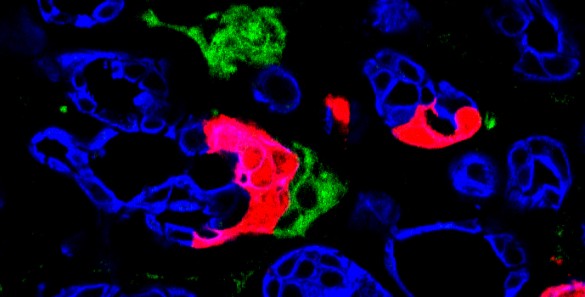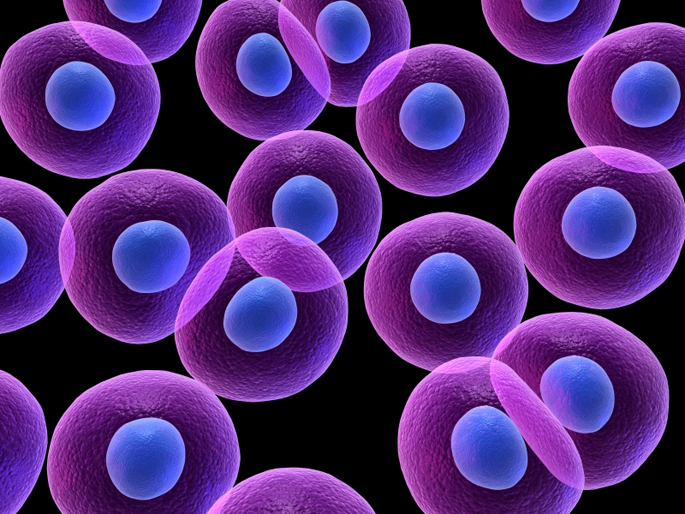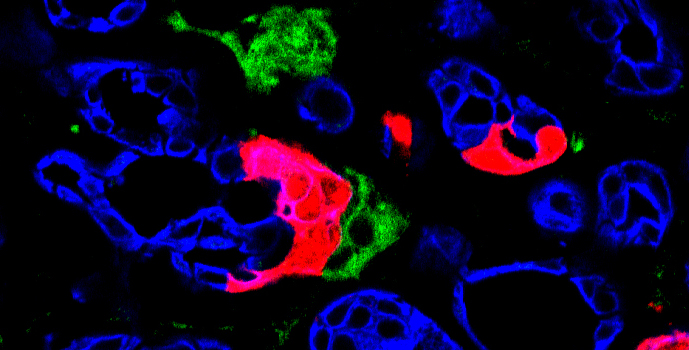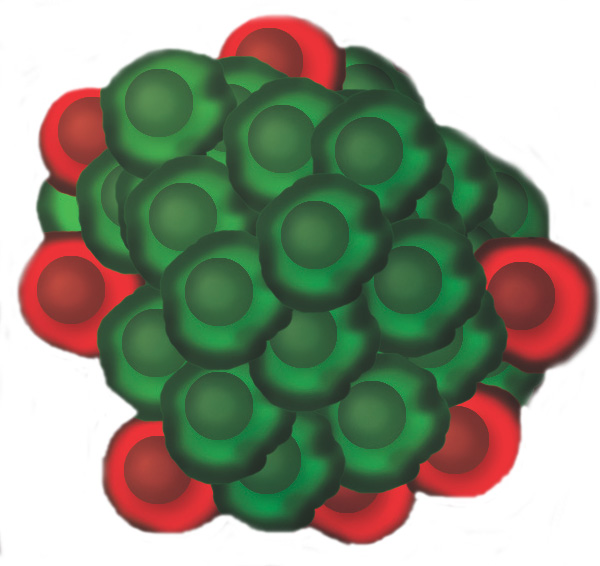Pancreas
-

Teams to create one-stop resource for human pancreatic data to foster diabetes research
Leading investigators in diabetes, pancreas and islet biology, and computational biology have received $12.5 million in two five-year awards from the National Institutes of Health to create the world’s first, integrated knowledge base of human-derived tissue- and cellular-level pancreatic information to support innovative, collaborative and reproducible research. Read MoreMar 28, 2024
-

Pancreas “crosstalk” may influence course of Type 1 and Type 2 diabetes
In the largest study of its kind, researchers at Vanderbilt have identified unexpected alterations in the exocrine tissues of the pancreas that occur in the two major forms of diabetes, and with aging and obesity. Read MoreNov 1, 2023
-

Pseudoislet system expected to advance pancreas and diabetes research
The multicellular, 3-D structure of human pancreatic islets — the areas of the pancreas containing hormone-producing or endocrine cells — has presented challenges to researchers as they study and manipulate these cells’ function, but Vanderbilt University Medical Center researchers have now developed a pseudoislet system that allows for much easier study of islet function. Read MoreJul 30, 2020
-

Keeping beta cells “fit”
Vanderbilt cell biologists are defining the factors that help beta cells in the pancreas stay healthy, secrete insulin and prevent diabetes initiation and progression. Read MoreJul 9, 2020
-

Patient’s freak pancreas injury spurs rapid response
Macie Glover sprinted across the gym floor at school earlier this year, tripped and crashed into a wall. In a bizzare sequence of events, she hit her head and arm and scraped her knees as the force of the crash propelled her whole body arching backward into a crescent shape. Read MoreSep 14, 2017
-

Making human beta cells reproduce
A new method developed at Vanderbilt will speed the search for potential therapeutics for diabetes: compounds that stimulate the replication of insulin-producing beta cells. Read MoreDec 8, 2016
-

Fighting type 2 diabetes with FGF1
The growth factor FGF1 induces the growth of new insulin-producing beta cells and may help treat type 2 diabetes. Read MoreNov 18, 2015
-

CaMKII enhances insulin secretion
The protein CaMKII acts as a calcium sensor in a positive feedback pathway that enhances glucose-stimulated insulin secretion. Read MoreMay 14, 2014
-

Searching for beta cell stimulators
Vanderbilt researchers describe a new technique for identifying factors that stimulate the proliferation of pancreatic beta cells – factors that might offer therapeutic options for diabetes. Read MoreJan 13, 2014
-

Pancreas cells full of potential
Adult cells in the pancreas can return to a less mature state – and then become a different cell type, like the beta cells that secrete insulin. Read MoreFeb 18, 2013
-

Study helps define pancreatic cancer’s cellular origins
Vanderbilt and University of California investigators have discovered the “cell of origin” for pancreatic ductal adenocarcinoma, a finding that could lead to early detection methods and new treatments. Read MoreJan 17, 2013
-

Beta cell imaging could help spot diabetes earlier
Vanderbilt researchers have developed a biomarker for beta cells that could make it easier to detect diabetes earlier. Read MoreMay 23, 2012
-

Pumping up the pancreas in pregnancy
A strain of mutant mice provide a novel model for studying glucose intolerance and gestational diabetes during pregnancy and suggest that certain molecules may be useful for therapeutic applications. Read MoreJan 20, 2012
-

Growth factor boosts beta cells
A growth factor may help grow transplantation-quality pancreas cells for treating diabetes. Read MoreOct 21, 2011